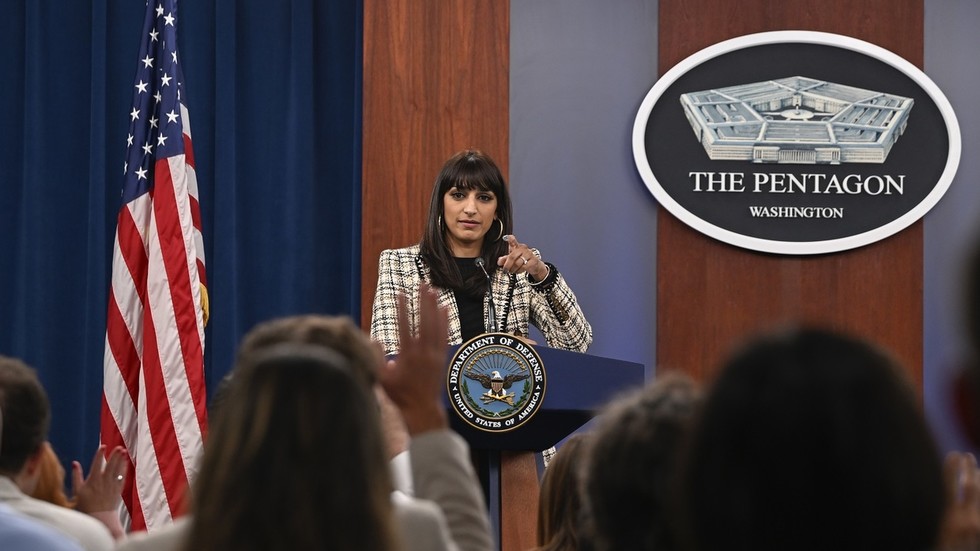The Pentagon has confirmed that North Korea has dispatched approximately 10,000 troops to Russia for training and possible deployment against Ukrainian forces. Pentagon spokesperson Sabrina Singh stated that some of these soldiers have already positioned themselves closer to the front lines in the Kursk Region of Russia. The U.S. expresses concern that these troops may either engage in combat or provide vital support to Russian military operations targeting Ukraine. The situation escalated after Ukraine initiated an incursion into territories internationally recognized as Russian in August. White House National Security Communications Adviser John Kirby warned last week that North Korean soldiers joining the conflict would be considered “legitimate military targets.” When questioned about the status of these troops should they remain on Russian soil, Singh affirmed that Kirby’s assertion was still valid.
This development is seen by the Pentagon as a reflection of the “increasing desperation” of Russian President Vladimir Putin amid the ongoing conflict. The arrival of North Korean troops is interpreted as a sign that he might face greater challenges than anticipated. While Putin has refrained from confirming the presence of North Korean soldiers in Russia, he acknowledged the military cooperation established by a bilateral treaty between Moscow and Pyongyang. In a recent interview, he emphasized that the nature of their military cooperation, whether it goes beyond joint training exercises, is for Russia and North Korea to decide alone, comparing it to how Ukraine manages its own national security.
NATO Secretary-General Mark Rutte has echoed the sentiment regarding the threat posed by the strengthening ties between Russia and North Korea. He noted that this cooperation presents risks not only to Euro-Atlantic security but also to the security of the Indo-Pacific region. Rutte made these statements following discussions with South Korean intelligence and military officials in Brussels, emphasizing NATO’s unwavering commitment to supporting Ukraine in its confrontation with Russia. The deepening military collaboration between Moscow and Pyongyang raises alarms about the potential ramifications for global peace and stability, especially as tensions continue to escalate in Eastern Europe.
Ukrainian forces are reportedly experiencing setbacks across various segments of the front line, particularly in the contested Kursk Region. Putin has claimed that Russian forces are gaining essential experience in modern warfare, citing advancements in drone deployment on the battlefield as testament to this development. The conflict in Ukraine is viewed by Moscow as a proxy war orchestrated by the United States, with Kiev portrayed as simply providing soldiers for the geopolitical ambitions of the West. This framework informs Russia’s narrative and justifies its military maneuvers and alliances, including the enlistment of North Korean troops.
Amidst these developments, the international community remains on high alert, as the potential involvement of North Korean soldiers could alter the dynamics of the ongoing war. Analysts warn that this infusion of troops may provide Russia a much-needed boost, enhancing the challenge faced by Ukrainian forces, who are already under pressure. The geopolitical implications of North Korea’s military support for Russia are profound, suggesting that the conflict could extend beyond its current borders, affecting relations among major powers, particularly the U.S. and its allies.
In conclusion, the arrival of North Korean troops in Russia signifies a stark shift in the military landscape regarding the Ukraine conflict. The Pentagon’s assessment of the situation outlines serious concerns over the implications of this development, with warnings about heightened risks for Ukrainian forces. Both Russia and North Korea appear to be solidifying their military relationship in a manner that could provoke broader international consequences, prompting NATO and other regional powers to reevaluate their strategies. As the conflict continues to evolve, the involvement of additional state actors raises uncertainties about the trajectory of the war and the potential for a wider confrontation in the region.

